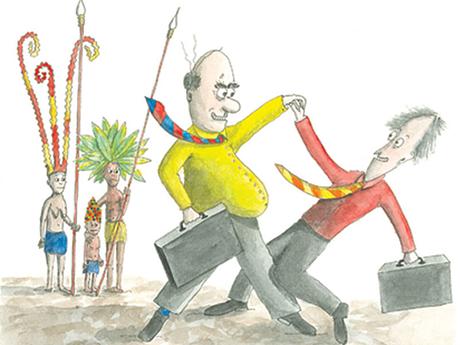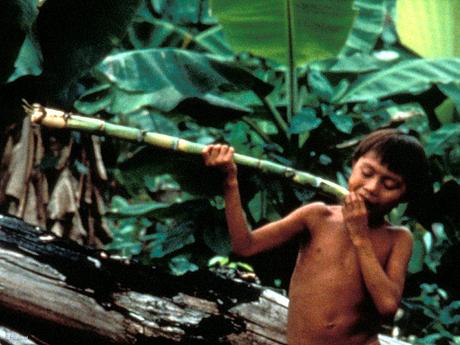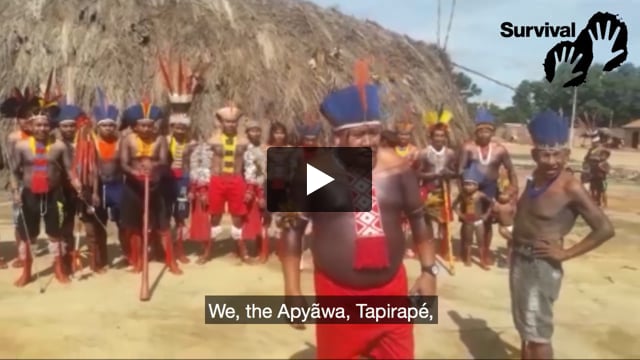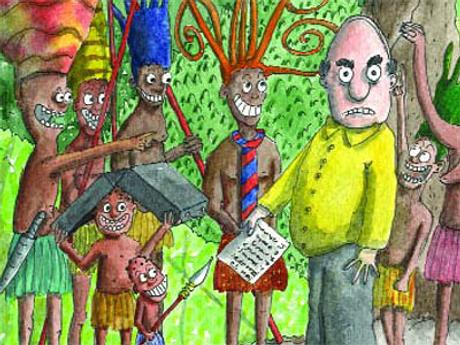Cartoon satire of ‘development’ launched in India
February 22, 2011
 © Oren Ginzburg/Survival
© Oren Ginzburg/SurvivalThis page was last updated in 2011 and may contain language which is now outdated.
Survival has today launched in India a cartoon book satirizing the destruction of tribal peoples in the name of ‘development’.
The book, ‘There you go!’, designed to be read in two minutes, is being sent to Prime Minister Dr Manmohan Singh, government ministers, and universities.
Survival’s Miriam Ross wrote in Saturday’s edition of The Hindu newspaper, ‘The briefcase-wielding officials in Oren Ginzburg’s satirical cartoon ‘There you go!’ claim to want to ‘bring sustainable development’ to an imaginary forest dwelling tribe.
‘What they really unleash is the clearing of the tribe’s forest and the destruction of their livelihood and culture. The self-sufficient tribespeople are reduced to poverty, dependent on welfare, living on rubbish dumps on the edge of a polluted city. All in the name of a ‘multi-stakeholder cross-disciplinary integrated approach’ to development.’
Tribal peoples around the world, from the Penan in Sarawak to Amazonian Indians, have told Survival that the cartoon reflects their experiences of ‘development’.
Mary Robinson, former President of Ireland and former UN High Commissioner for Human Rights, said, ‘This little book contains the big message that we must avoid the arrogance of presuming to know what’s best for those whose voices are not heard in global debates. It reminds us of our shared responsibility to see to it that all people are active participants in shaping the decisions that impact their lives. Only then can we hope to see real development.’
Survival is calling on India’s new National Council for Tribal Welfare to challenge the notion that tribal people are ‘backward’.
Survival’s director Stephen Corry said today, ‘Tribal peoples are simply asking for their rights to be respected and an end to the crimes committed against them. These crimes have long masqueraded as ‘development’, but have actually left a trail of suffering and destruction in their wake. Tribal peoples in the 21st century should be allowed to make their own choices about their own futures.’




